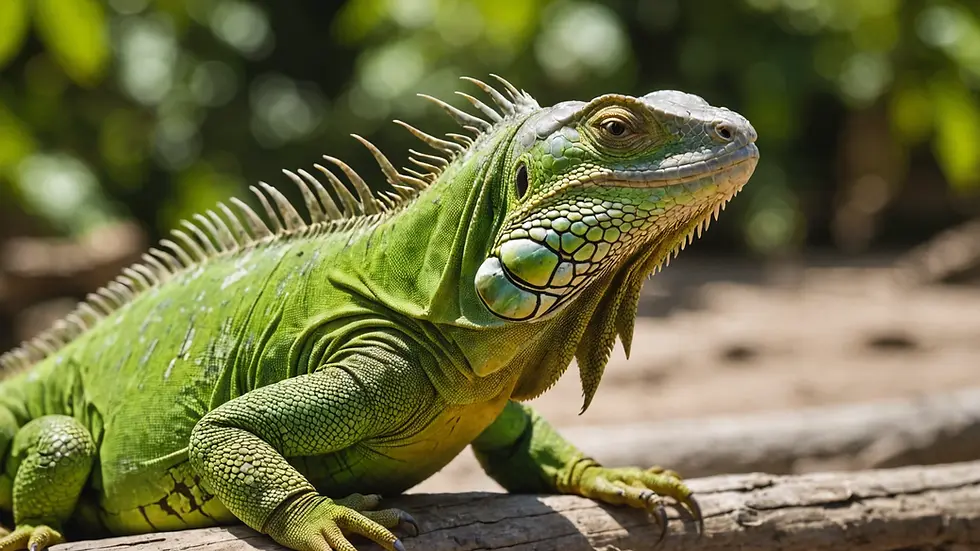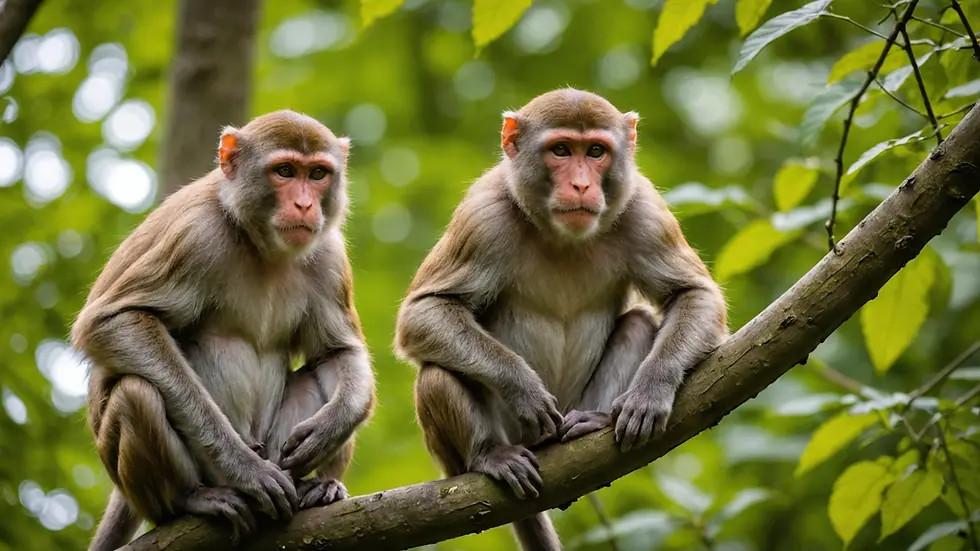Are Florida's Tokay's, Iguana's, and Monkeys Taking Over? Exploring the Sunshine State's Invasive Animal Populations
- Joel Scoby

- Nov 23, 2024
- 4 min read
Florida is renowned for its beautiful beaches, lively culture, and diverse wildlife. However, lurking behind this idyllic image is an urgent problem: invasive animal populations. Tokays, iguanas, and monkeys are not just fascinating to see; they pose real threats to Florida's ecosystems, agriculture, and even public health. In this blog post, we’ll explore the severe implications of these exotic species and share steps to combat their spread.
The Tokay Gecko: The Little Lizard with a Big Presence
Tokay geckos (Gekko gecko) are eye-catching invasive species that have settled into Florida's warm climate. Known for their bright colors and loud calls, these geckos originally hail from Southeast Asia.
While their vivid appearance can be enchanting, their impact is alarming. Tokays thrive in urban areas, relying on buildings for shelter. They're aggressive predators, preying on insects that, while often seen as pests, are vital to local ecosystems. Research shows that a single tokay can consume over 1,000 insects monthly, which can lead to the decline of native insect populations. This disruption can ripple through the food chain, affecting species that rely on those insects for survival.
As if that weren't enough, tokays can also cause property damage by nesting in homes, which can lead to costly repairs. Their presence may introduce parasites harmful to both pets and people. This elevates public health concerns, making management of tokays a priority.
Green Iguanas: A Growing Green Problem
Green iguanas (Iguana iguana) have made Florida their home, largely thanks to the pet trade. Imagine walking through southern Florida, and spotting these large lizards—an unwelcome sight for many.

Green iguanas can cause extensive damage to gardens. These herbivores consume a variety of plants, including popular flowers, citrus fruits, and vegetables. For example, one study found that iguanas can devour up to 30% of a homeowner's garden in a single season, leading to substantial economic losses for gardeners and farmers alike.
Their burrowing activity is another significant concern. Iguanas dig tunnels that can undermine driveways and home foundations, costing property owners thousands in repairs. Additionally, their droppings can introduce diseases, posing risks to both humans and pets.
The Monkey Business: Unwanted Primates
The presence of monkeys, particularly rhesus macaques (Macaca mulatta), is surprising to many Floridians. Originally brought to Florida for research, these monkeys have expanded their range significantly, with a population now exceeding 700 in regions like Silver Springs.

While these monkeys are undeniably fascinating, they can create real problems. Their social nature means they often gather in large groups, scavenging for food, which leads to property damage and disruption of local wildlife. Reportedly, they can break into homes and steal food, leading to significant inconveniences for residents.
Moreover, rhesus macaques can carry diseases, such as herpes simian virus and tuberculosis, heightening public health risks. With their geographic spread, these monkeys threaten not just local ecosystems but the well-being of Floridians as well.
The Ripple Effect: Consequences of an Invasive Animal
Each of these invasive species disrupts Florida's delicate ecosystems. Their presence can eliminate native species, change hunting behaviors, and alter plant communities. For example, research indicates that as these non-native predators flourish, they reduce the availability of native insects, which impacts birds and small mammals that depend on them. This imbalance can lead to a decline in local biodiversity, a reality many Floridians overlook.
Managing these invasive species requires a comprehensive strategy. Increasing public awareness paired with humane trapping and removal initiatives is crucial. Many people simply do not understand the extent of the impact these invaders have, making education a vital first step in addressing the issue.
What Can Floridians Do?
As a Floridian, there are several ways you can aid in managing invasive species:
Get Informed: Knowledge is essential. Familiarize yourself with the invasive species in your area. The Florida Fish and Wildlife Conservation Commission offers valuable resources for education.
Be Responsible Pet Owners: If you own a pet iguana, do thorough research before bringing one home. Consider adopting from local rescues rather than purchasing them from pet stores, as this can contribute to the invasive problem if they're released into the wild.
Report Sightings: If you see an invasive species, contact local wildlife authorities. Reporting these sightings helps them monitor populations and implement control measures.
Plant Native Flora: When gardening, add native plants that are suited to Florida's climate. This supports local wildlife and promotes a balanced ecosystem.
Participate in Local Clean-ups: Help keep your neighborhood free from litter that can attract animals, including monkeys.
Taking Action Together
Florida faces a significant challenge with invasive species such as tokays, iguanas, and monkeys. It falls on each of us to respond. By staying informed and getting involved, communities can protect the unique ecosystems that define Florida.
The state's natural beauty and diverse species are treasures worth safeguarding. Understanding and addressing the threat of invasives is essential for a sustainable future, benefiting both residents and wildlife alike.
Collective efforts can make a difference, and every action counts. Let's work together to maintain the ecological balance of Florida for generations to come.



Comments